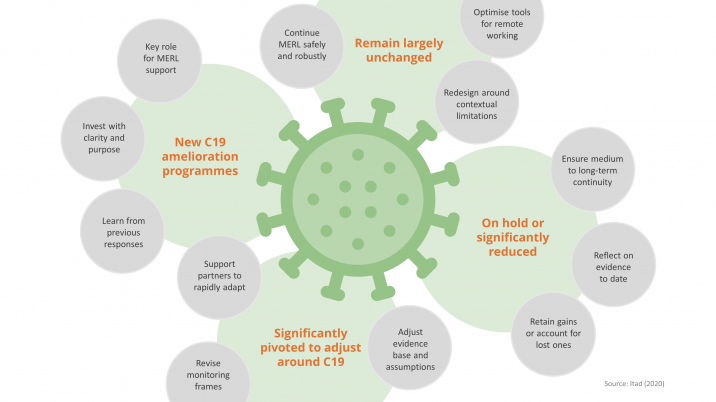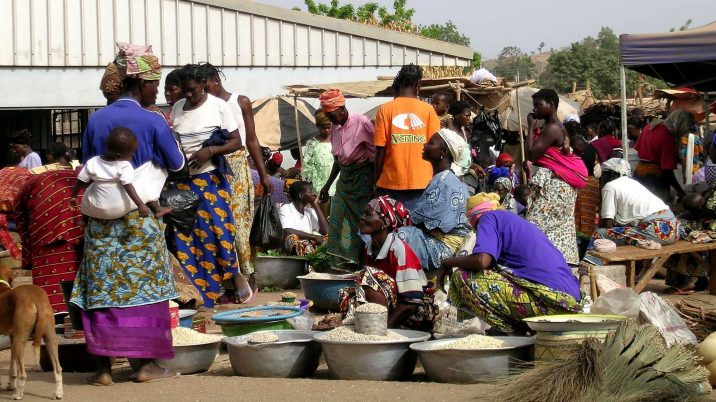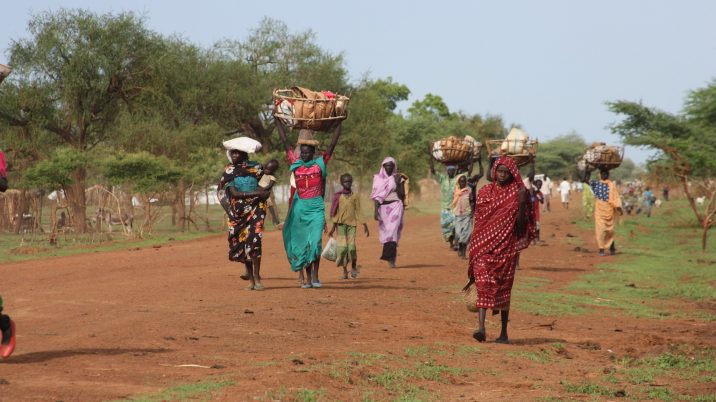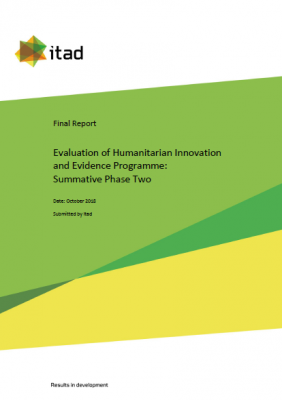Humanitarian assistance
Our evaluation and learning support provides our partners with evidence and practical solutions, based on rigorous field-testing, to improve the quality and reach of humanitarian action in complex emergency settings.
Use the filters below to explore our work in humanitarian assistance.
Filter content:

Evaluating the impact of reintegration assistance provided under the EU-IOM Joint Initiative in the Horn of Africa region
Migration is a growing reality for millions of people across the globe. In 2017, IOM (International Organization for...

UNHCR Country Portfolio Evaluation: Angola (2016-2019)
This report relates to an independent evaluation of the United Nations High Commission for Refugees (UNHCR) country operation...

Recovering better from COVID-19: Lessons from WASH and protracted crises
Globally, people living in protracted crises represent the ‘last mile’ in terms of reaching the SDGs — they are the most...

Global Evaluation of UNICEF’s WASH Programming in Protracted Crises, 2014–19
This Global Evaluation of UNICEF’s WASH Programming in Protracted Crisis (WiPC) is the first UNICEF global thematic...

Evaluation of the World Food Programme’s Gender Policy
Without equal opportunities, access to resources and representation for all, hunger will not be eliminated. The goal of the...

Evaluation of the World Food Programme Gender Policy (2015-2020)
The WFP (World Food Programme) Gender Policy (2015-2020) was approved in May 2015. The evaluation provides evidence, analysis...

Conflict and coronavirus: What the pandemic means in fragile settings
While all of us at Itad grapple with the impacts of COVID-19 on the countries where we work, for those of us working on...

Continuing results in development:
the importance of evidence during COVID-19
The COVID-19 (C19) pandemic has had profound effects on lives around the world and will continue to do so for years, if not...

Evaluation at the humanitarian-development nexus: Lessons from the DRC
Having only joined Itad in late 2019 as a research analyst, I was eager to get out into the field and explore the world of...

Evaluation of the Adaptive Social Protection in the Sahel Programme
Poor and vulnerable people face increased shocks and stresses to their livelihoods. These can be global, such as financial...

Evaluation of Sida’s strategic partnership for humanitarian assistance
Sida works with strategic partners worldwide, including UN agencies and non-governmental organisations, to deliver...

Evaluation of the World Food Programme’s Bangladesh Country Strategic Plan
Itad is evaluating the World Food Programme’s (WFP) Country Strategic Plan (CSP) for Bangladesh between 2016 and 2020,...

Global Evaluation of UNICEF’s Water, Sanitation and Hygiene Programming in Protracted Crises, 2014-2019
The average humanitarian crisis, which requires a UN-coordinated response, lasts more than nine years. Vulnerability in such...

Evaluation, Learning, and Verification for Agency Reform (ELVAR)
DFID’s 2014 Strategy for Payment by Results states that the department will use PBR to improve the value for money of their...

Evaluation of Humanitarian Innovation and Evidence Programme: Summative Phase Two
The Department for International Development (DFID) invested £54.6 million into a humanitarian innovation and evidence...

Country Operation Evaluations: Angola, Afghanistan, Iraq and Egypt
UNHCR’s country operations aim to work effectively to pursue protection and solutions, to support the inclusion of...

